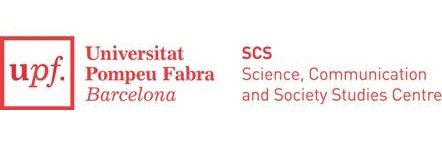MODULE B2
Document analysis
Two types of document are of interest in this analysis:
– Type 1: Those that set out plans, proposals and objectives for science in society / scientific culture initiatives and policies at a city or regional level
– Type 2: Those that present the results of previous evaluations of or commentaries on science in society / scientific culture initiatives and policies
In both cases, the analysis begins with a document search, focused in Type 1 on establishing if there are written policies on science in society / scientific culture published by the city or regional authorities in question. If so, where are they found? (Printed? On the web? Both?).
We set out below how web searches can be used to find documents that explicitly mention science culture or similar terms or that detail the city’s or region’s support for institutions and programs promoting science culture.
Note, however, that there may be policies that primarily concern ‘green’ issues, transport or healthcare, but that contain substantial science culture (e.g, public engagement) elements.
These sections of the documents should be included in the analysis. Note also, that there may be policies of individual political parties or other major civil society organisations concerning science in society in the city or region in question. These documents could also be included, taking care to record the relevant affiliations.
a) Basic data should be recorded on the length, authorship and target audience (stated or implied) of the policy documents and on the timescale and budget (if stated) for the programs outlined.
b) Further content analysis should record the target groups for participation in the program outlined and the presence, absence and relative weight in the documents of
• social and economic objectives, e.g. tourism, infrastructure, jobs
• quality of life objectives, e.g. sustainability, community wellbeing, community participation, lifestyle
• policy and partnership objectives, e.g. aimed-for involvement of researchers, expert and citizens, administrative structure changes
• educational objectives, e.g. involvement with schools, promotion of lifelong learning, promotion of research institutions’ public engagement
For demonstration purposes, we analyzed city web sites to investigate their activity in the field of scientific culture. These searches focused on the activity of the city council, i.e. the administrating body of the city. They sought information on activities, institutions, policies, etc. related to science culture that are initiated or supported by a given city. They could be museums or science centres, science festivals, policy statements, etc.
Here is a check-list of steps for such searches:
− Go to official city website
− See if “science” appears on a first level
− Otherwise explore “culture” and pages concerning “museums”, “festivals” and such institutions and activities
− Search for the word “science” on the site as a whole (with its search tool)
− Do a general search for “[name of city] + culture + scientific / science”
− Check whether the city funds all the events or institutions you find
− Keep record of web sites, etc.
For Type 2 Documents about previous evaluations and commentaries on science in society/scientific culture. The analysis should be conducted according to the same criteria as policy documents, asking what do these evaluations and commentaries say about the achievement of stated objectives such as those mentioned I policy statements, programs, initiatives, etc.
The boundaries of the search are less clearly defined than for policy documents. Any formal evaluations are of particular interest. Where these exist, it should be recorded whether they are self-evaluations or independent evaluations, by whom or on whose behalf they were conducted and how widely they were made available.
In the absence of such evaluations the search could extend to commentaries by the mass media or published in the media on science in society initiatives in the relevant city or region.
In both cases, the document search can be supported in the interviews with policy-makers: they should be asked if policy documents have been produced, if evaluations have been commissioned and if media commentaries have been published.

